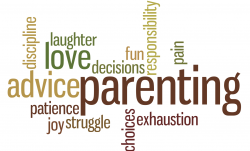
A few years ago I read an article about the top traits of good parents. Even though it’s been several years since the article’s publication, the information is timeless and I wanted to share it once again.
The following is from “WHAT MAKES A GOOD PARENT? A scientific analysis ranks the 10 most effective child-rearing practices” by Robert Epstein, Scientific American Mind, November/December 2010, pp. 46-51
The Top Traits of Good Parents
Here are 10 competencies that predict good parenting outcomes, listed roughly in order from most to least important. The skills—all derived from published studies—were ranked based on how well they predict a strong parent-child bond and children’s happiness, health, and success.
- LOVE AND AFFECTION. You support and accept






